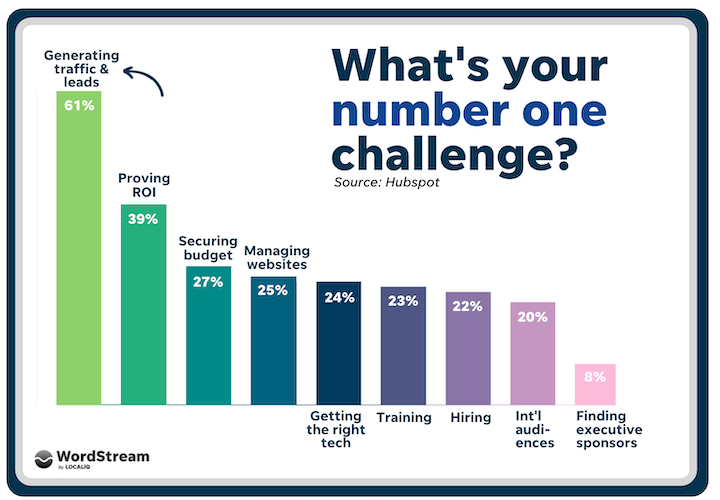Unleashing the Power of Technology: Shaping Our Future
Unleashing the Power of Technology: Shaping Our Future" is a comprehensive exploration of the impact, advancements, and ethical considerations surrounding technology. This long-form article covers various aspects of technology, including communication, artificial intelligence, IoT, big data, virtual reality, robotics, biotechnology, green technology, cybersecurity, blockchain, education, healthcare, social and psychological impacts, workforce transformation, government policies, and future trends. Each section provides insights into the benefits, challenges, and potential of technology while addressing the need for responsible and inclusive development. The article concludes with a summary emphasizing the transformative power of technology and the importance of harnessing it for a brighter future

I. Introduction
- A. The impact of technology on society: Explore how technology has transformed various aspects of society, from communication to healthcare.
- B. The evolution of technology over time: Trace the development of technology from its early beginnings to the present day.
- C. The significance of technology in our daily lives: Highlight the essential role technology plays in our day-to-day activities.
II. Technological Advancements in Communication
- A. The rise of smartphones and mobile connectivity: Discuss how smartphones have revolutionized communication and made it more accessible.
- B. Social media platforms and their influence: Explore the impact of social media on communication, relationships, and information dissemination.
- C. The future of communication technology: Delve into emerging technologies that are shaping the future of communication, such as 5G and beyond.
III. Artificial Intelligence and Machine Learning
- A. Understanding AI and its applications: Provide an overview of artificial intelligence and its practical uses in various industries.
- B. Machine learning algorithms and their benefits: Explain the benefits of machine learning and how it enables computers to learn and make decisions.
- C. Ethical considerations in AI development: Discuss the ethical implications and challenges associated with AI, including bias and privacy concerns.
IV. The Internet of Things (IoT)
- A. Introduction to IoT and its potential: Define the Internet of Things and explore its potential to connect and automate various devices.
- B. Smart homes and connected devices: Discuss how IoT technology is transforming homes and creating a more interconnected environment.
- C. IoT in industries and its impact on efficiency: Examine the applications of IoT in industries, such as manufacturing and logistics, and its impact on productivity.
V. Big Data and Analytics
- A. The concept of big data and its sources: Explain the concept of big data and the various sources from which it is generated.
- B. Data analytics and its role in decision-making: Explore how data analytics can extract valuable insights and support decision-making processes.
- C. Privacy and security concerns in big data: Address the privacy and security challenges associated with the collection and analysis of large-scale data.
VI. Virtual Reality (VR) and Augmented Reality (AR)
- A. Immersive experiences through VR technology: Discuss how virtual reality technology creates immersive experiences in gaming, entertainment, and training.
- B. Applications of AR in various industries: Explore the practical applications of augmented reality in fields such as healthcare, retail, and architecture.
- C. Advancements and future possibilities: Highlight the ongoing advancements in VR and AR and their potential to reshape industries and enhance human experiences.
VII. Robotics and Automation
- A. The rise of robotics in different sectors: Examine the increasing role of robotics in industries such as manufacturing, healthcare, and agriculture.
- B. Automation's impact on productivity and jobs: Discuss how automation technologies are transforming workflows, increasing efficiency, and impacting the job market.
- C. Challenges and ethical considerations in robotics: Address the challenges and ethical considerations associated with the integration of robotics into society, including job displacement and ethical use.
VIII. Biotechnology and Genetic Engineering
- A. Genetic modification and its implications: Discuss the advancements in genetic engineering and the ethical considerations surrounding genetic modification of organisms.
- B. Medical breakthroughs through biotechnology: Explore the medical applications of biotechnology, such as gene therapy and personalized medicine.
- C. Ethical debates surrounding genetic engineering: Examine the ethical dilemmas and debates surrounding genetic engineering, including designer babies and genetic enhancement.
IX. Green Technology and Sustainability
- A. Innovations in renewable energy: Highlight the advancements in renewable energy technologies and their potential to combat climate change.
- B. Sustainable practices in manufacturing and transportation: Discuss sustainable practices in industries like manufacturing and transportation, including eco-friendly materials and electric vehicles.
- C. Technology's role in combating climate change: Explore how technology can contribute to mitigating climate change through smart grids, energy-efficient buildings, and carbon capture.
X. Cybersecurity and Data Privacy
- A. The importance of cybersecurity in the digital age: Explain the significance of cybersecurity in protecting data and systems from cyber threats.
- B. Threats and challenges in safeguarding data: Discuss the various threats and challenges faced in maintaining data privacy and protecting against cyber attacks.
- C. Balancing security with privacy rights: Explore the delicate balance between security measures and individual privacy rights in the digital landscape.
XI. Blockchain Technology and Cryptocurrencies
- A. Understanding blockchain and its applications: Provide an overview of blockchain technology and its potential applications beyond cryptocurrencies.
- B. Cryptocurrencies and decentralized finance (DeFi): Discuss the emergence of cryptocurrencies and the transformative impact of decentralized finance.
- C. Potential disruptions and future implications: Explore the potential disruptions that blockchain technology and cryptocurrencies may bring to industries like finance, supply chain management, and voting systems.
XII. Ethical Considerations in Technology Development
- A. Addressing biases and discrimination in algorithms: Discuss the importance of addressing biases and discrimination in algorithms to ensure fairness and equity.
- B. Responsible AI and the role of regulation: Explore the need for responsible AI development and the role of regulations and guidelines in governing AI technologies.
- C. Promoting inclusivity and accessibility in tech: Highlight the importance of inclusivity and accessibility in technology design to ensure equal access and opportunities for all.
XIII. The Future of Technology: Emerging Trends
- A. Quantum computing and its potential impact: Discuss the potential of quantum computing to revolutionize computing power and solve complex problems.
- B. Edge computing and its advantages: Explore the benefits of edge computing in enabling real-time processing and reducing latency.
- C. Next-generation connectivity: 5G and beyond: Highlight the advancements in connectivity technology, such as 5G and beyond, and their potential to enable faster and more reliable networks.
XIV. Technology and Education
- A. Transforming the learning experience through technology: Discuss how technology is transforming education through online learning platforms, adaptive learning, and interactive tools.
- B. E-learning platforms and personalized education: Explore the benefits of e-learning platforms and how personalized education is tailored to individual needs.
- C. Bridging the digital divide in education: Address the challenges of the digital divide and how technology can bridge the gap to provide equal educational opportunities.
XV. Technology in Healthcare
- A. Telemedicine and remote healthcare services: Discuss how technology enables telemedicine and remote healthcare services, improving access to healthcare and patient outcomes.
- B. Medical advancements and technology-driven treatments: Explore the medical advancements facilitated by technology, such as robotic surgeries, AI-assisted diagnostics, and wearable health devices.
- C. Ethical considerations in healthcare technology: Address the ethical implications surrounding the use of technology in healthcare, including patient privacy and data security.
XVI. Social and Psychological Impacts of Technology
- A. Impact of technology on mental health: Discuss the effects of technology on mental health, including social media's influence, addiction, and digital stress.
- B. Social media's influence on relationships and self-esteem: Explore how social media platforms can impact relationships, self-esteem, and body image.
- C. Digital well-being and finding balance in a connected world: Provide strategies for maintaining digital well-being and finding a healthy balance between technology use and offline activities.
XVII. Technology and Workforce Transformation
- A. Automation's impact on jobs and skills: Discuss the potential impact of automation on the workforce, job displacement, and the need for upskilling.
- B. Upskilling and reskilling in the digital era: Highlight the importance of upskilling and reskilling to adapt to technological advancements and remain relevant in the job market.
- C. Redefining work-life balance in a technology-driven world: Explore how technology is reshaping work-life balance, including remote work, flexible schedules, and the blurring of work and personal life boundaries.
XVIII. Government Policies and Technology Regulation
- A. Balancing innovation with consumer protection: Discuss the role of government policies in striking a balance between promoting technological innovation and protecting consumer rights.
- B. Privacy laws and data governance: Explore the importance of privacy laws and data governance frameworks in safeguarding individual privacy rights and regulating data collection and usage.
- C. Global cooperation in technology regulation: Discuss the need for international collaboration and cooperation to address cross-border challenges in technology regulation and ensure a harmonized approach.
XIX. Summary: Harnessing Technology for a Brighter Future
- A. Recap of key technological advancements: Summarize the key advancements discussed throughout the article, emphasizing their impact and potential.
- B. Opportunities and challenges in embracing technology: Highlight the opportunities for societal advancement through technology, as well as the challenges that need to be addressed.
- C. The need for responsible and inclusive technological development: Emphasize the importance of responsible and inclusive technological development to ensure a positive and equitable future.
XX. Frequently Asked Questions (FAQs)
- A. What are the key benefits of technology in our lives?
- B. How is technology transforming industries and businesses?
- C. What are the ethical concerns surrounding AI and automation?
- D. How can individuals protect their privacy in the digital age?
- E. What are the future trends and advancements in technology?
This comprehensive outline provides a brief overview of each section, capturing the main points and subtopics to be covered in a long-form article on the topic of technology.
What's Your Reaction?



















![Canva Tutorial For Beginners | How to Use Canva Like PRO [FREE] | Canva Full Course](https://img.youtube.com/vi/yWJp7gQqCQ8/maxresdefault.jpg)


